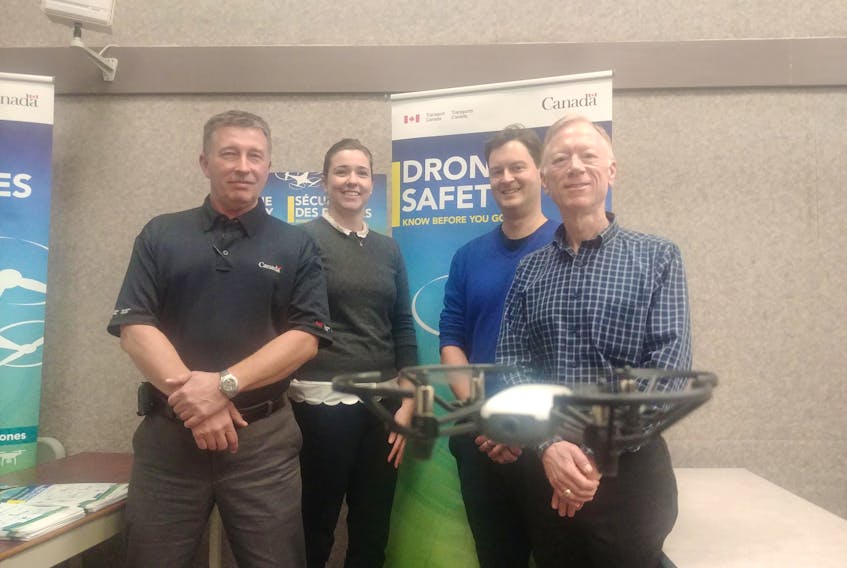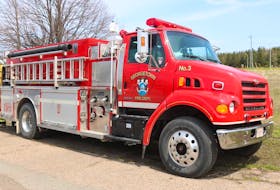As new drone regulations are set to come into effect later this year, there are still some questions about what operators of the remote-controlled aerial vehicles can and can’t do.
The new drone rules, which take effect June 1, are meant to regulate the growing popularity of drones, both recreational and commercial.
“There’s definitely a Wild West mentality about these sorts of things,” said Carl Warren, flight operations inspector, with Transport Canada at a recent stop in Charlottetown.
“You just have to use common sense.”
Jim Souter was one of the people who came out to the information session, part of Transport Canada’s Drone Talks 2019 cross-country tour. The Stratford man was concerned how much documentation would be required if he wanted to use a drone at an event that was advertised and open to the public.
If a drone is registered under advanced operations, it’s OK to safely fly it at events. But if the event is advertised online or in the paper, Souter wonders if a special flight operations certificate (SFOC) is then needed.
“To me, the terminology just creates some confusion,” Souter said, noting the certification is “quite complex in order to get that”.
Roger Smith, another flight operations inspector with Transport Canada, said the federal department is still working on some of the wording.
“We have to start somewhere to ensure a certain level of safety to the public,” Smith said.
All drones must now be registered online. There are two categories they can be registered under – basic operations and advanced operations.
Registering under basic operations means the drone can’t be flown in controlled airspace. It must be flown 5.6 kilometres away from airports and 1.8 kilometres from heliports.
It has to fly below 400 feet and can’t fly within 30 metres of bystanders. For example, if a drone is being used to film at the beach, and there are beach-goers present who aren’t involved with the filming, the drone cannot be flown.
Those beach-goers must become participants in order for the drone to be used, said Warren.
“They can no longer be bystanders.”
Pilots must survey the flight site beforehand, have their registration documents on-hand and stay away from emergency situations.
Registering under advanced operations means the drone can fly within 30 metres or above bystanders. To fly in controlled airspace, the operator must get permission from NAV Canada or air traffic control.
Registering under either category will require the drone’s serial number, $15 and taking a test covering topics like meteorology and aerodynamics. The advanced operations test is more in-depth and requires attending an in-person flight school.
Pilots must also note a provinces or organizations drones regulations. For more information, including on micro drones, second-hand drones and homemade drones, visit canada.ca/drone-safety or call 1-800-305-2059.









